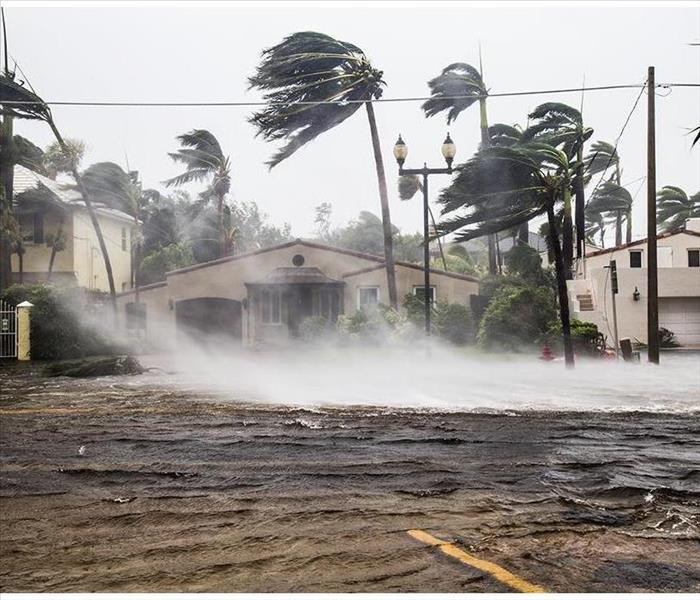Hurricane Hazards
8/4/2020 (Permalink)
Hurricane season is upon us, and there are several named storms that have developed in the Atlantic, Caribbean and Gulf of Mexico. On average, there are about 12 tropical storms that will develop between June 1st and November 30th. Of those 12 storms, 6 of them will become hurricanes according to the National Weather Service. We know that hurricanes can be life-threatening, and they can cause a serious amount of property damage. The National Weather Service lists the following as potential "hurricane hazards".
Storm surge: is the abnormal rise of water generated by a storm's winds. This hazard is historically the leading cause of hurricane related deaths in the United States. Storm surge and large battering waves can result in large loss of life and cause massive destruction along the coast. It can also travel several miles inland, especially along bays, rivers and estuaries.
Flooding: from heavy rains is the second leading cause of fatalities from landfalling tropical cyclones. Widespread torrential rains associated with these storms often cause flooding hundreds of miles inland. This flooding can persist for several days after a storm has dissipated.
Winds: from a hurricane can destroy buildings and manufactured homes. We also see that signs, roofing material and other items left outside can become flying missiles during a hurricane.
Tornadoes: can accompany landfalling tropical cyclones. They typically occur in rain bands well away from the center of the storm.
Dangerous waves: produced by a tropical cyclone's strong winds can pose a significant hazard to coastal residents and mariners. These waves can cause deadly rip currents, significant beach erosion and damage to structures along the coastline. This is even when the storm is more than 1,000 miles offshore.
With this all being said, preparation is the best protection against the dangers of a hurricane. Make sure you plan an evacuation route and your emergency plan, take inventory of your property and take steps to protect your home or business.





 24/7 Emergency Service
24/7 Emergency Service
